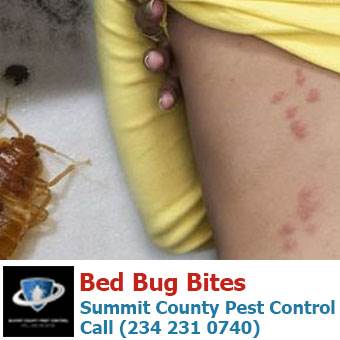Professional A1 Bed Bug Exterminator in Houston - Effective Solutions
Professional A1 Bed Bug Exterminator in Houston - Effective Solutions
Blog Article
Understanding the Lifecycle of Pests for Targeted Control Techniques
Comprehending the lifecycle of insects is an essential aspect of effective pest management approaches. By understanding the different phases of growth that parasites undertake, a much more accurate and targeted approach can be adopted to regulate their populations. This knowledge not just loses light on the vulnerabilities within the pest lifecycle but also leads the way for executing tactical steps that can disrupt their growth and reproduction cycles. Via a much deeper understanding of exactly how pests develop and thrive, tailored control approaches can be created to deal with details factors in their lifecycle, ultimately resulting in even more successful parasite administration end results.
Importance of Comprehending Parasite Lifecycle
Understanding the lifecycle of bugs is important for establishing effective and targeted control methods in parasite management. By comprehending the different phases a pest goes with from egg to grownup, pest control experts can recognize weak spots in the lifecycle where intervention can be most effective. Understanding when larvae are most energetic can aid determine the optimal timing for applying larvicides. Additionally, comprehending the life expectancy of a parasite varieties can aid in predicting population growth patterns and potential infestation dangers.
Additionally, recognizing the specific environmental problems essential for each and every phase of the bug's lifecycle can assist choices on environment adjustment or exclusion methods to lower and interfere with the lifecycle bug populations. This knowledge makes it possible for pest monitoring specialists to apply positive steps instead of counting exclusively on reactive therapies, resulting in even more long-lasting and lasting pest control services. Ultimately, a thorough understanding of parasite lifecycles equips pest control experts to tailor their strategies properly, making the most of and decreasing environmental influences control results.
Trick Stages in Parasite Development
To effectively implement targeted control techniques in pest management, an important element lies in comprehensively identifying and understanding the key stages in pest growth. Parasite growth normally is composed of a number of essential stages that are crucial for their lifecycle and management.

Susceptabilities in Bug Lifecycle
Throughout the different stages of an insect's lifecycle, distinct vulnerabilities arise that can be strategically targeted for effective control actions (A1 Bed bug Exterminator houston). One vital vulnerability exists in the egg phase, where insects are frequently a lot more prone to certain insecticides or organic control representatives due to their soft outer shell, making them less complicated targets for treatment. Comprehending these susceptabilities in the bug lifecycle is necessary for establishing effective and precise control methods that efficiently take care of bug populations while lessening environmental impact.
Applying Targeted Control Procedures

Implementing targeted control procedures generally entails a multi-faceted technique. This may consist of habitat adjustment to make the environment less friendly to insects, such as getting rid of standing water for mosquito control or securing entry points for rats. Additionally, biological control approaches Bonuses can be used, where all-natural predators or microorganisms are presented to keep bug populaces in check.
Integrated Parasite Monitoring (IPM) approaches that incorporate different control procedures in a worked with and lasting way are typically the most efficient in accomplishing long-term pest management objectives. By applying targeted control actions based on a thorough understanding of pest lifecycles, pest populations can be efficiently managed while lessening risks to human health and wellness and the environment.
Improved Parasite Management Practices

Furthermore, the consolidation of organic control representatives, such as natural killers or virus of insects, can help in reducing dependence on chemical pesticides and promote a much more well balanced community. Carrying out physical obstacles and traps can click this likewise become part of enhanced bug monitoring practices, providing safe and targeted solutions for insect control. In addition, using scents and various other semiochemicals can disrupt pest mating patterns and interaction, leading to minimized pest populations in time.
Verdict
To conclude, understanding the lifecycle of bugs is crucial for effective insect monitoring strategies. By determining crucial phases in parasite development and vulnerabilities in their lifecycle, targeted control steps can be carried out to decrease insect populations. Improved insect administration methods can assist minimize the dependence on broad-spectrum chemicals and advertise even more environmentally friendly and sustainable parasite control approaches. This expertise plays a vital function in maintaining healthy communities and agricultural productivity.
Understanding the lifecycle of bugs is vital for creating effective and targeted control strategies in pest monitoring. By comprehending the numerous stages a parasite goes with from egg to grownup, insect control specialists can determine vulnerable points in the lifecycle where treatment can be most successful. Inevitably, a complete understanding of pest lifecycles my website equips pest control professionals to customize their techniques properly, reducing ecological impacts and maximizing control outcomes.
By executing targeted control actions based on a comprehensive understanding of bug lifecycles, parasite populations can be successfully regulated while minimizing dangers to human wellness and the setting.
By identifying essential phases in insect advancement and susceptabilities in their lifecycle, targeted control actions can be implemented to reduce insect populaces.
Report this page